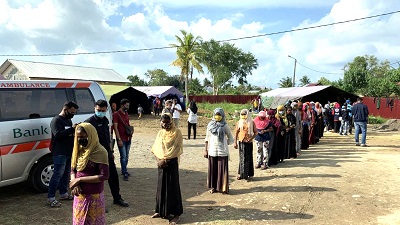Context:
According to the United Nations High Commissioner for Refugees (UNHCR), over 22,000 Rohingya refugees currently reside in India, having fled Myanmar between 2012 and 2017 due to severe military operations. Interviews with Rohingya families and lawyers reveal that approximately 500 Rohingya, including women and children, are currently detained across India, often without charges and for prolonged periods.
Who Are the Rohingya?
- Stateless Minority: The Rohingya are a Muslim ethnic minority from predominantly Buddhist Myanmar. Despite generations of residence, they have been denied citizenship since 1982, rendering them stateless.
- Identity and Marginalization: The term "Rohingya" emerged in the 1950s to assert their collective identity and historical ties to the region. However, the Myanmar government has systematically marginalized the Rohingya, severely restricting their rights and freedoms.
Roots of the Crisis
- Decades of Discrimination: The UN Human Rights Council reports that longstanding discrimination by the Myanmar government against the Rohingya has fueled the crisis. They face restrictive citizenship laws and limitations on marriage, family planning, education, and freedom of movement. The majority of Rohingya live in Rakhine State, Myanmar's least developed region, which is a persistent flashpoint in ethnic tensions.
Main Challenges Facing Rohingya Refugees in India
- Detention: Rohingya refugees in India often face fears of detention, with hundreds reportedly held in various forms of detention across the country. The lines between "holding centers" and detention centers are blurred, leading to arbitrary detentions in deplorable conditions marked by overcrowding, poor nutrition, and limited medical care. This exacerbates their insecurity and vulnerability.
- Risks to Women and Girls: Rohingya women and girls face gender-based discrimination and violence, leading to severe mental health issues like anxiety, fainting, dissociation, and self-harm. Anti-Muslim and anti-refugee sentiment further isolates them, compounded by the threat of arbitrary detention and deportation, despite many having UNHCR refugee cards. They also have limited access to reproductive health services and support for gender-based violence, perpetuating poverty and vulnerability.
- Deportation: The threat of deportation to Myanmar looms large for Rohingya in India. Despite international laws against refoulement, India has deported Rohingya refugees, viewing them as illegal immigrants and a security threat. This fear forces many refugees into hiding, denying them essential services and furthering their trauma.
- Access to Education: Rohingya children face significant barriers to education due to the lack of biometric Aadhaar cards, despite laws ensuring education for all children aged six to 14. The downgrading of UNHCR cards worsens this situation. Those who do enroll encounter long commutes, language barriers, and discrimination.
- Access to Livelihood Opportunities: Without Aadhaar cards, Rohingya refugees struggle to find stable employment, often working in the informal sector where they are vulnerable to exploitation and detention. While some initiatives by UNHCR and NGOs provide small grants and self-employment opportunities, these efforts are insufficient.
- Living Conditions: Rohingya refugees live in slum-like settlements with inadequate housing made of wood, metal, and plastic. These makeshift homes are prone to fires, often suspected to be set by extremists. Lack of clean water and sanitation leads to widespread health problems, exacerbated by the dense living conditions.
- Access to Basic Health Services: The lack of Aadhaar cards severely limits access to healthcare. Basic treatments are available at government hospitals, but specialized care is often unaffordable. Poor living conditions lead to various health issues, further exacerbated by the COVID-19 pandemic.
A Call to Action: Addressing the Crisis on Multiple Fronts
A multi-pronged approach is urgently needed to address the mental health crisis among Rohingya refugees in India:
- Mitigate Re-traumatization: Address the core causes of trauma by providing Rohingya with dignity, agency, and official recognition in India.
- Universal Healthcare Access: Ensure all UNHCR cardholders have access to primary and tertiary healthcare facilities for timely mental health diagnosis and treatment.
- Empower Grassroots Organizations: Support civil society organizations working with Rohingya refugees, overcoming funding restrictions due to cancelled FCRA licenses.
- Safe Spaces for Healing: Create safe spaces for Rohingya refugees to access mental health services without fear, supporting their healing journey.
Conclusion
The treatment of Rohingya in India reflects their broader regional plight. Although the core issue originates in Myanmar, countries of first or second refuge are not adequately protecting Rohingya refugees. In India and elsewhere, Rohingya face restricted rights, harassment, and detention, mirroring the persecution they escaped. Rather than re-victimizing the Rohingya, India, and other countries should enhance efforts to protect them and support the community in building a better future.
|
Probable Questions for UPSC Mains Exam-
|
Source- The Hindu







